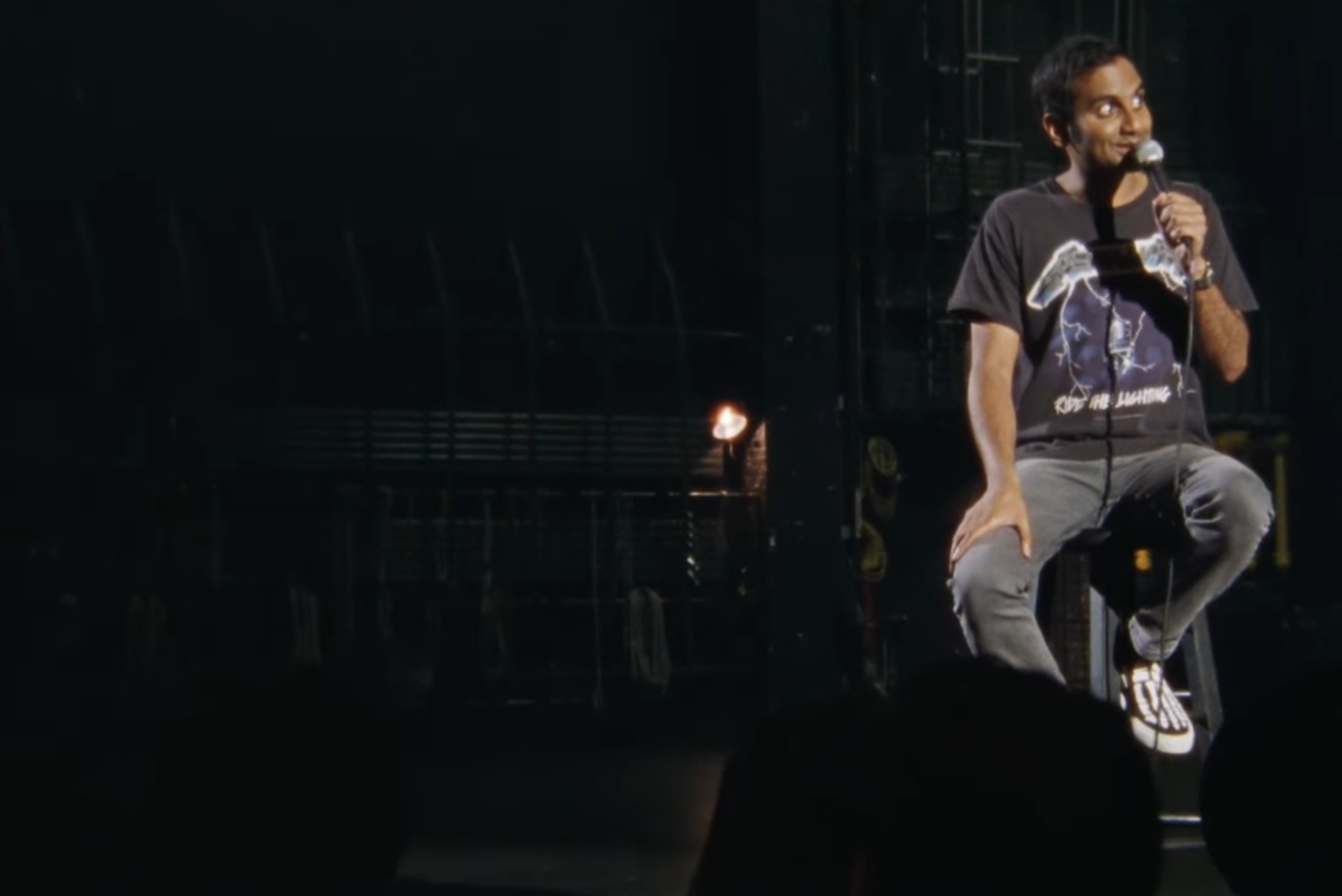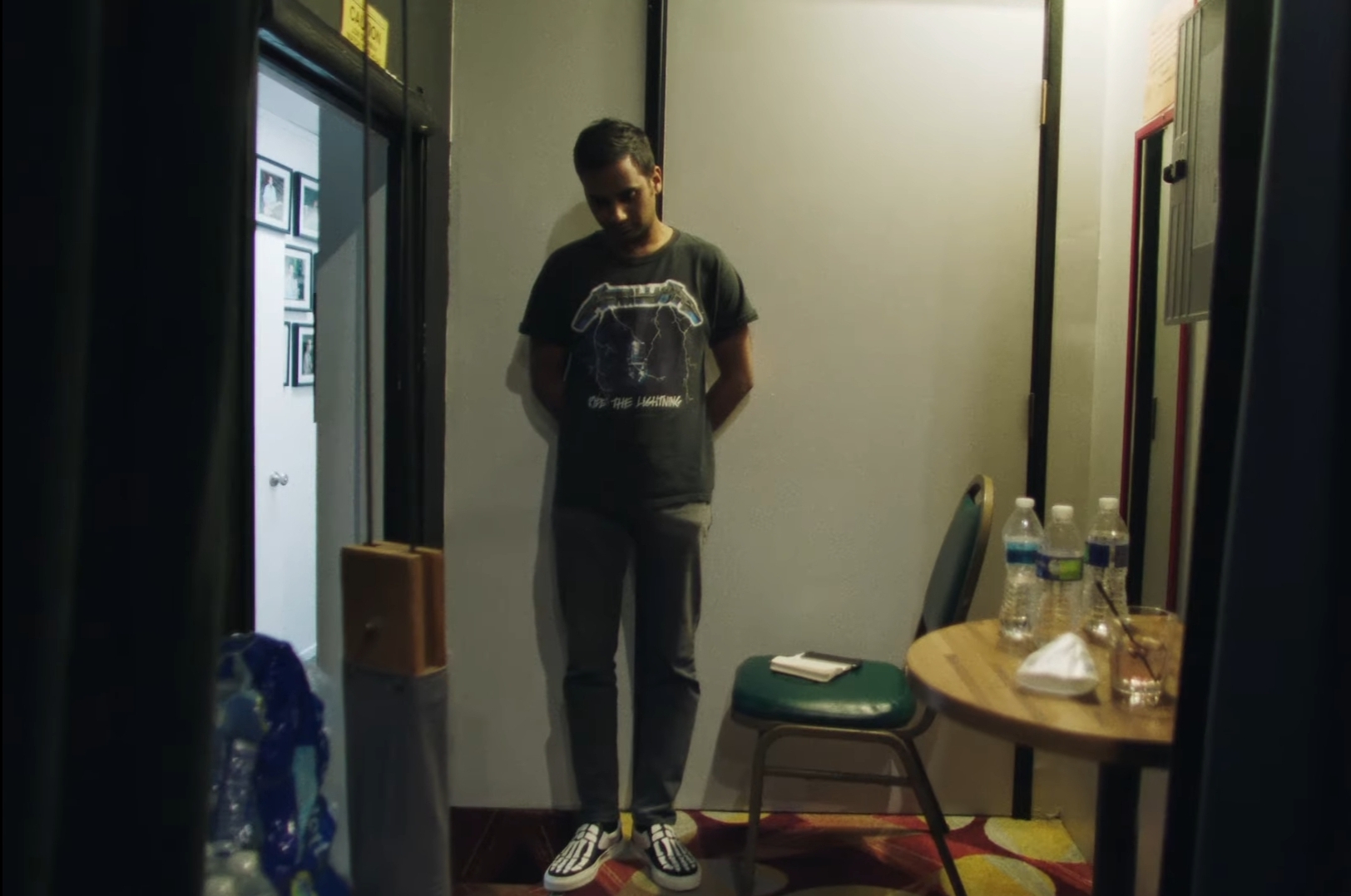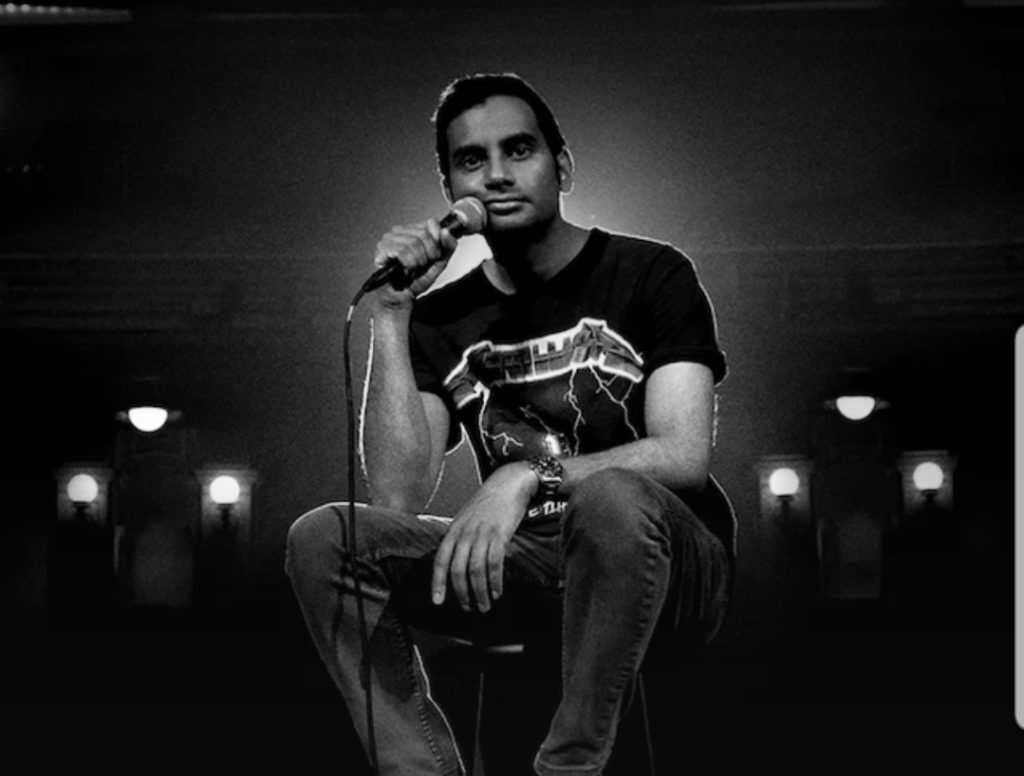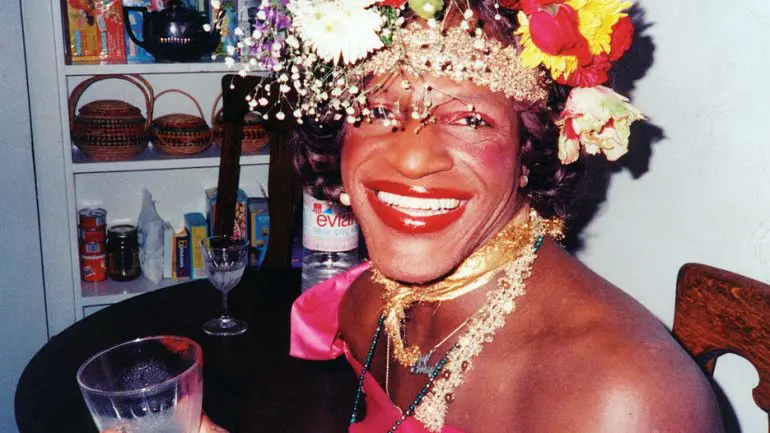Summary
Aziz Ansari is back in this funny, still irreverent, yet polarizing stand-up film that rebirths himself back into the world since his sexual misconduct charges.
This is a second opinion on Aziz Ansari: Right Now. You can check out our original review by clicking these words.
Having watched Aziz Ansari’s stand-up comedy for a while, the last time I saw him perform live was at Mandalay Bay in Las Vegas, NV, to a packed house around 2015. He was confident, naturally nerdy, and yet cocky, even brazen. He hurled an F-bomb at a man who was trying to yell a joke during his set — which, frankly, was welcomed. I didn’t shell out my hard-earned money to hear a drunk guy tell jokes with slurred speech. In his new comedy stand-up film, Aziz Ansari: Right Now he seems to be calmer, more mature, still confident, but seems to have developed an ability to tell jokes with a warm touch, but with the same sting.
I had been a fan of Ansari’s stand-up comedy, film, and television work, well before his self-mandated career silence (more on that in a second). While I do a mean Ron Swanson impression — just watching put in that third order of steak now, please and thank you, at any fine eatery the United States has to offer, it was Ansari who has the direct line to my funny bone as Tom Haverford in Parks and Recreation. He stand-up touches on topics of race, politics, family, friends, numerous past criminal acts by other entertainers, and even sexual misconduct, but not just his own allegations, which is puzzling that he still went there.
Ansari’s comedy in Aziz Ansari: Right Now still has some serious bite to it, however. His take on how it’s welcomed that racists are quick and to the point, while “woke white people” are exhausting is the type of observational humor that made him a star stand-up. “Things don’t just become racist when white people figure them out.” Ansari has always had a unique perspective on culture, race relations, and politics, having started growing up as an East-Indian American child in South Carolina.

However, as a writer he now is pointing out everyone’s faults, what he was accused of was the wrong impression, and any fault he had in the matter is nothing compared to past atrocities others have made. He also brought up several beloved films, performers, and television shows that would not be appropriate today. Is Ansari trying to make a point that we all have chosen to change what is acceptable and unacceptable behavior, why people should not judge him based on what you can find on the internet is not necessarily true, but what you want to believe?
This film was directed by the great Spike Jonze, the visionary director of Being John Malkovich, Adaptation, Where the Wild Things Are, and Her. Directing a documentary stand-up comedy film seems like an out of left field choice for such an accomplished director. Is it though? Considering the decade we’ve lived in, the social movements, he is clearly interested in how a man rebirths himself into the court of public opinion.
Jonze uses close-up shots to humanize a man who was at the center of the most polarizing “Me Too” accusation made during the movement. (Some saw it as misogynistic and reflected a larger cultural problem; while others felt the narrative of the accuser trivialized what the movement stood for.) His lens captures a man who looks tired, older than his 36-years, while even a thinner, withered version of himself that someone who was on the cusp of a creative peak and wants to document the moment of what ultimately is the public choice that is out of his hands.

The film was shot in May of this year in Brooklyn (you can see the front row has different patrons in frequent shots of the same joke) over three nights. Ansari started the show, after a joke, as a way to ease into addressing his sexual misconduct allegations against him. The accused comedian fluffed up the same statement he has used about the situation, telling the audience how, “There are times I felt scared, there are times I felt humiliated, there are times I felt embarrassed, and ultimately I just felt terrible that this person felt this way.”
The comedian then moved on and I was struck at how much the statement seemed sad, but rehearsed, down to his whisper, and wasn’t about a man humbled, but of someone holding back an almost contempt of what transpired. Near the end of his act, only then, do we get to see a glimpse of a self-effacing, even gracious man, having the opportunity to be on stage doing what he loves as he might have just woke himself. The moment he walks off stage is honestly polarizing.
Whatever you think of Asari and the situation he found (or put) himself in, his comedy is still funny, smart, always irreverent, with a warmer delivery of a man dipping his toe back in his professional waters — which isn’t really true since he has been publicly touring for a good six months before these shows. You could take this special as propaganda to save his career or as a way to show his fans he is grateful for the opportunity to do what he loves. Ultimately, it’s in the public’s hands and yours.



